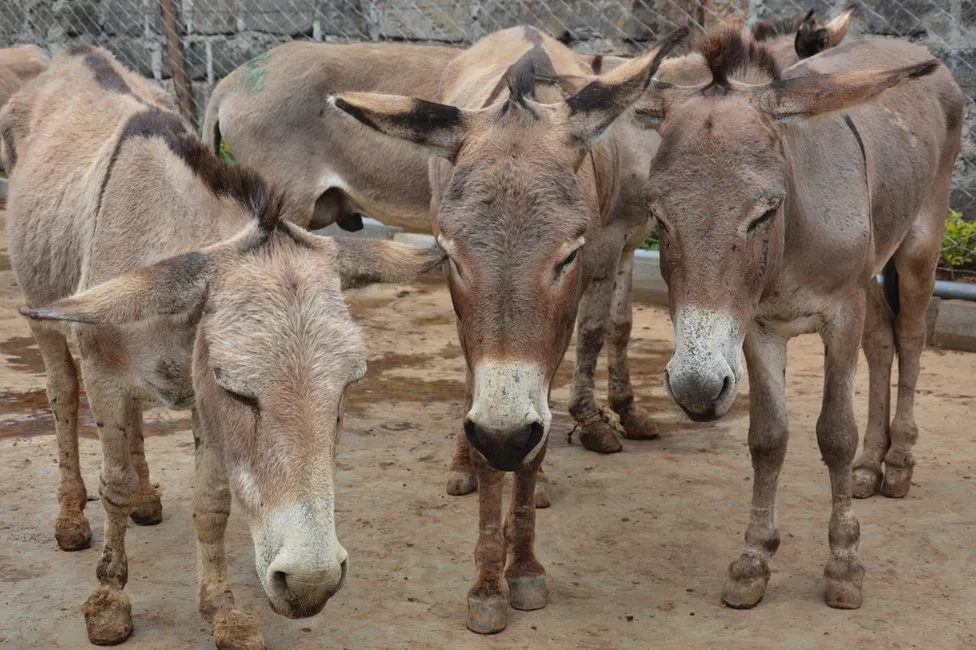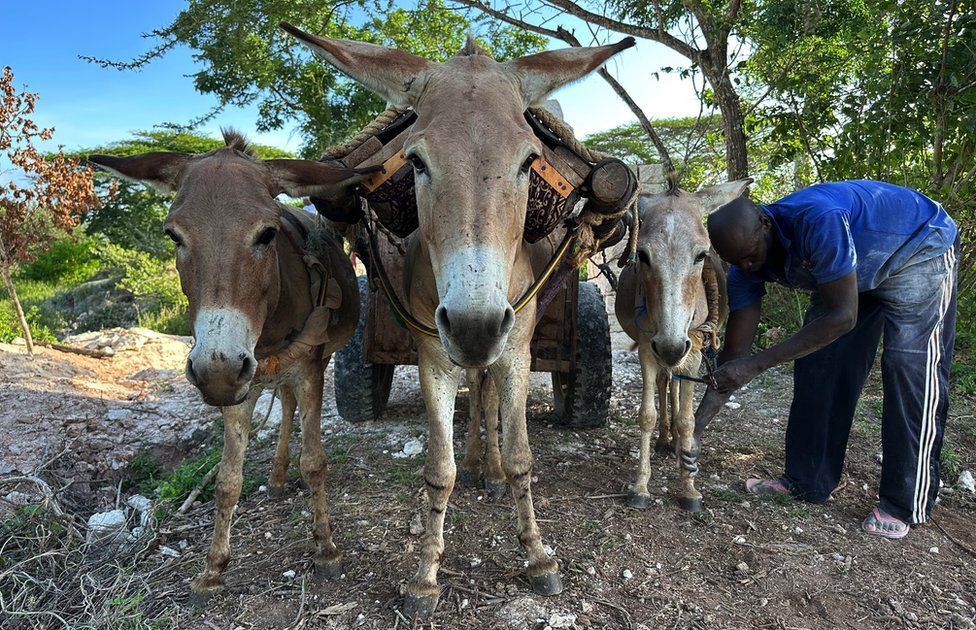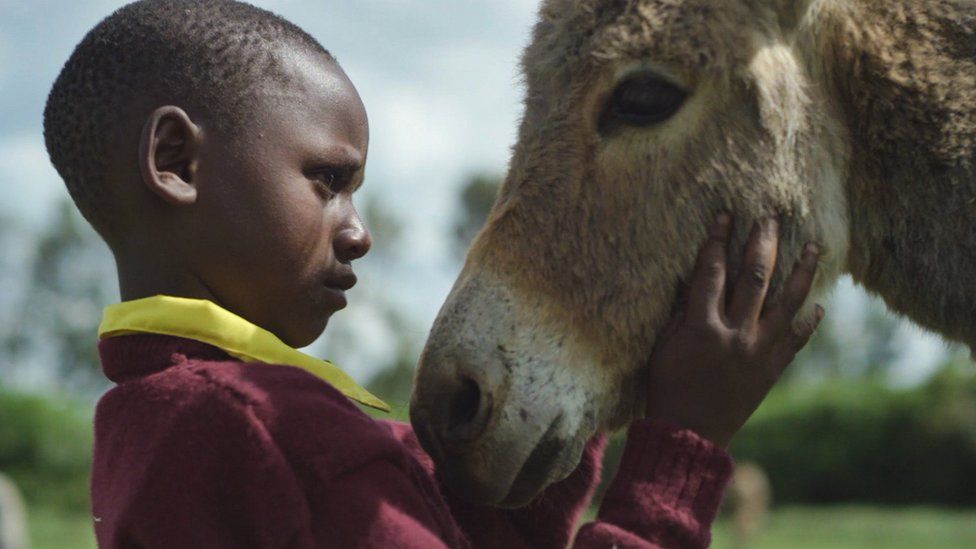Foreign News
‘Brutal’ donkey skin trade banned in 55 countries

Animal welfare charities have welcomed an Africa-wide ban on the controversial donkey skin trade.
It will make it illegal to slaughter donkeys for their skin in 55 countries across the continent. African state leaders approved the ban at the conclusion of the African Union summit in Ethiopia on Sunday.
Demand for the animals’ skins is fuelled by the popularity of an ancient Chinese medicine called Ejiao, traditionally made from donkey hides. Ejiao is believed by some to have anti-ageing and health benefits, although this is unproven. Chinese companies that make it used to use skins from donkeys sourced in China. But when the numbers of the animals in the country plummeted, they looked overseas.
The Charity, the Donkey Sanctuary, called the the trade “brutal and unsustainable” and said it had decimated donkey populations around the world, particularly in Africa and South America. “At first our governments saw this as an opportunity, and many legal slaughterhouses opened in Africa,” explained Dr Solomon Onyango from the Donkey Sanctuary in Kenya. “But, here in Kenya, between 2016 and 2019, about half of our donkeys were killed for the trade,” he said.

Dr Onyango told BBC News that the ban would “go a long way to safeguarding donkeys and the livelihoods of millions of people who rely on them”.
About two-thirds of world’s estimated population of 53 million donkeys are in Africa. People in the poorest, rural communities use them for transport and to carry water, food and other goods.
One recent study in Ethiopia – that set out to measure the economic value of donkeys – showed that owning one could mean the diffeence between destitution and a modest livelihood.
Raphael Kinoti, who is regional director of the animal welfare charity The Brooke in East Africa said this was a “terrific moment for communities in Africa who have benefitted from donkeys since time immemorial”. “Donkey slaughter for its skin has eroded livelihoods in Africa, robbing the continent of its culture, biodiversity and identity,” he said.
“We urge all AU members to uphold the decision for the good of all.”

Foreign News
Woman jailed over £39 donation to Ukraine freed in US-Russia prisoner swap

A Russian-American citizen has been released in a prisoner swap between Moscow and Washington.
Amateur ballerina Ksenia Karelina, a Los Angeles resident, had been in prison in Russia for over a year, after being arrested in the city of Yekaterinburg in early 2024.
She was found guilty of treason for donating money to a US-based charity providing humanitarian support to Ukraine and was sentenced to 12 years in a penal colony.
In exchange, the US reportedly freed Arthur Petrov, a dual German-Russian citizen arrested in Cyprus in 2023. He was accused of illegally exporting microelectronics to Russia for manufacturers working with the Russian military.
[BBC]
Foreign News
Nationwide strike for better pay brings Greece to standstill

A nationwide general strike disrupted public services across Greece, with ferries tied up in port, flights grounded and public transport running only part-time as labour unions press for higher wages to cope with rising living costs.
The 24-hour strike on Wednesday was called by the two main umbrella unions covering the public and private sectors, seeking a full return of collective bargaining rights which were scrapped as part of international bailouts during Greece’s financial crisis.
Greece has emerged from a 2009-18 debt crisis, which saw rolling cuts in wages and pensions in turn for bailouts worth about 290 billion euros ($319bn) and economic growth seen at 2.3 percent this year, outpacing other eurozone economies.
Tapping on the country’s progress, the conservative government increased the monthly minimum wage by a cumulative 35 percent to 880 euros ($970). But many households still struggle to make ends meet amid rising food, power and housing costs, the labour unions say.
The country braces for further global financial turmoil triggered by US tariffs.
[Aljazeera]
Foreign News
King and Queen meet Pope Francis at Vatican on their anniversary

King Charles and Queen Camilla have had a private meeting with Pope Francis at the Vatican where he wished them a happy 20th wedding anniversary.
In a statement released by Buckingham Palace, the King and Queen said they were “delighted the Pope was well enough to host them – and to have had the opportunity to share their best wishes in person”.
The meeting took place on the third day of their state visit to Italy and ahead of a state banquet in Rome on Wednesday evening.
It is understood the meeting was only confirmed on Wednesday morning. It came after previous plans for the couple to meet the pontiff in a state visit to the Vatican were postponed because of the Pope’s ill health.
(BBC)
-

 Business4 days ago
Business4 days agoColombo Coffee wins coveted management awards
-

 Business6 days ago
Business6 days agoDaraz Sri Lanka ushers in the New Year with 4.4 Avurudu Wasi Pro Max – Sri Lanka’s biggest online Avurudu sale
-

 Features5 days ago
Features5 days agoStarlink in the Global South
-

 Business7 days ago
Business7 days agoStrengthening SDG integration into provincial planning and development process
-

 Business6 days ago
Business6 days agoNew SL Sovereign Bonds win foreign investor confidence
-

 Features2 days ago
Features2 days agoSri Lanka’s Foreign Policy amid Geopolitical Transformations: 1990-2024 – Part III
-

 Features5 days ago
Features5 days agoModi’s Sri Lanka Sojourn
-

 Midweek Review2 days ago
Midweek Review2 days agoInequality is killing the Middle Class











